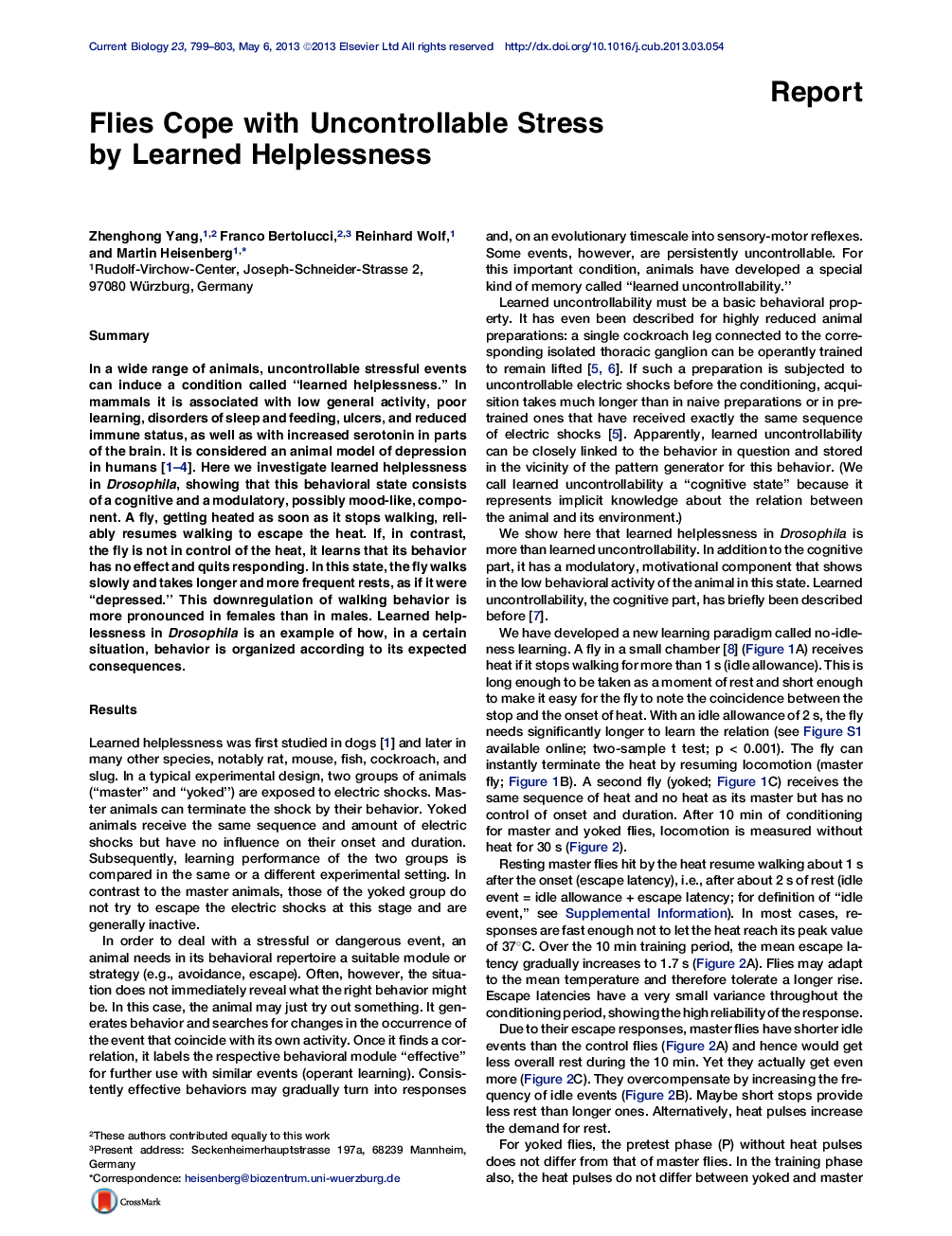| Article ID | Journal | Published Year | Pages | File Type |
|---|---|---|---|---|
| 2042773 | Current Biology | 2013 | 5 Pages |
SummaryIn a wide range of animals, uncontrollable stressful events can induce a condition called “learned helplessness.” In mammals it is associated with low general activity, poor learning, disorders of sleep and feeding, ulcers, and reduced immune status, as well as with increased serotonin in parts of the brain. It is considered an animal model of depression in humans [1, 2, 3 and 4]. Here we investigate learned helplessness in Drosophila, showing that this behavioral state consists of a cognitive and a modulatory, possibly mood-like, component. A fly, getting heated as soon as it stops walking, reliably resumes walking to escape the heat. If, in contrast, the fly is not in control of the heat, it learns that its behavior has no effect and quits responding. In this state, the fly walks slowly and takes longer and more frequent rests, as if it were “depressed.” This downregulation of walking behavior is more pronounced in females than in males. Learned helplessness in Drosophila is an example of how, in a certain situation, behavior is organized according to its expected consequences.
► We examine operant learning of uncontrollability in the fly ► Cognitive and motivational control of action are separately assessed ► Uncontrollability suppresses walking behavior ► In animal model of depression, females are more affected than males
